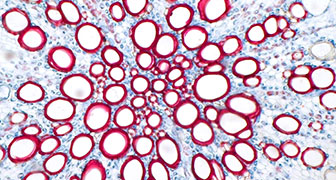There has been a great deal in the news about Hormone Replacement Therapy (HRT), and as a naturopathic physician, I am thankful every time lifestyle, dietary and botanical treatments are included in the discussions.
In the conventional medical world, HRT is usually managed with synthetic hormones, which can produce unhealthy side effects. Many women are unaware they have a safer option for balancing their hormones. There are natural, bioidentical hormones as well, which have proven to be very successful for many women.
Synthetic vs. Bio-Identical Hormones
There is more research available on synthetic hormone replacement because synthetic medications are patentable. Natural substances (those existing in nature) are not; therefore, less profit is available for research, development, and sale of bioidentical estrogens, progesterone and other hormones— which many physicians have been prescribing for 20 years or more.
It is a little known fact that these bioidentical treatments are rarely followed by cancer, stroke or heart disease, unlike their synthetic cousins.
Prempro® was one of the most-prescribed menopausal drug therapies. It is made from equilin, the urine from pregnant mares. This very potent form of estrogen is much harder for a woman’s body to break down effectively than her native estrogen. A friendlier, yet still problematic drug is Estrace®.
A far healther choice is to use hormones identical to a woman’s own native estrogens (estradiol, estriol, and estrone are the ones produced by the body in the highest quantities). These bio-identicals are made from yam and soy.
Testing and personalized treatment is key
Testing should be done on each patient taking any form of HRT, bioidentical or synthetic, to estimate the risk of estrogen-related cancers. There are several important tests I recommend. One looks for how estrogen is breaking down into hydroxyestrones, which can increase the risk of cancers depending upon how they are metabolized by the body. Another test measures ratios of individual steroid hormones that work in concert. Incorrect ratios lead to increased cancer risk.
When one hormone is out of tune, others often are too. When a woman’s ovarian reserves decline beginning at perimenopause, her adrenal, thyroid and other hormones attempt to pick up the slack. Balancing the entire biochemical pathway makes for better health.
Whatever form of estrogen a woman uses; she should be tested annually, and treated with the most health-friendly, appropriate-dose estrogen effective for her. Treatment plans need to be customized to each individual, and should factor in how easily that woman’s body can metabolize the estrogen and other hormonal agents used. Then, and only then, should therapy begin, starting with the least invasive methods first.
Be proactive about your health
In addition to keeping their own hormones in balance, women should stay aware of (and try to limit) the external hormones they ingest or are exposed to. These external hormones include environmental toxins that mimic estrogen, such as those found in certain foods, plastics, cosmetics and sunscreens, and more.
Women must be educated and proactive: annual testing, breast exams, mammograms and lifestyle changes can all promote better health and more balanced hormones. It takes a blended approach — optimal health care does not come in the form of one prescription pill.
In my two decades of practice, I have found that when we regulate a woman’s hormone processing potential in concert with dietary and herbal treatments, we can reduce hormone supplementation by more than 50%. This means we keep the cancer risk down while enhancing a woman’s health.
Read more about the importance of balanced hormones here.






